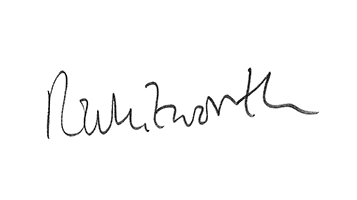Koen Janssens’ closing remark – “...working hard to achieve other people’s goals” – struck a chord with me; it’s a sentiment that succinctly defines the role of the analytical sciences. In isolation, it could be read in two ways. Koen is either disillusioned by being in the backseat – the glass is half empty – or he is happy to be an integral part of something bigger. When you read the whole interview, I am sure you will agree that Koen’s glass is half full – if not brimming. After all, he clearly loves what he does.
And yet, playing a ‘supporting role,’ however vital, can sometimes have its disadvantages. When it comes to receiving funding or hitting the headlines, analytical science is not always in pole position – which is why I am always thrilled to learn of analytical chemists winning large research grants. We covered Peter Schoenmakers’ €2.5 million from the European Research Council (ERC) back in May – but we must also offer a belated congratulations to VUB’s Gert Desmet, who received a similarly big slice of funding. Both Peter and Gert are using the funds to tackle intractable challenges in separation sciences – in particular, addressing the dizzying complexity of biological samples. Having spoken to both Gert and Peter at Riva 2016, it’s clear that such funding not only recognizes the individuals and groups receiving them, but also highlights the increasing importance of analytical chemistry – even if it is ‘just’ a supporting role. Look out for a feature on this topic in the near future. The reality is, without analytical support, science is blind – much like art-historians, who could never know the secrets that “lie beneath” the surface, if it were not for dedicated analytical scientists both developing advanced techniques and operating them with great skill and care.
The best thing about being an analytical scientist? New challenges – or rather opportunities – are constantly coming to light either because innovative instrumentation allows you to do something novel or because a new industry demands your attention. To this latter point, The Analytical Scientist is partnering with the Cannabis Science Conference (www.cannabisscienceconference.com) to produce a special supplement – The Cannabis Scientist – as well as its official guide. Why? Because the nascent medicinal cannabis industry is in serious need of analytical support. Canncon, the NPO behind the October 2016 conference, was founded principally to unite the two communities – and we want to help. Many of you (especially those in the established food and pharma fields) have a great deal of relevant experience to share. Chromatographers, spectrometrists, chemometricians, lend me your ears (and expertise)!
Rich Whitworth Editor





